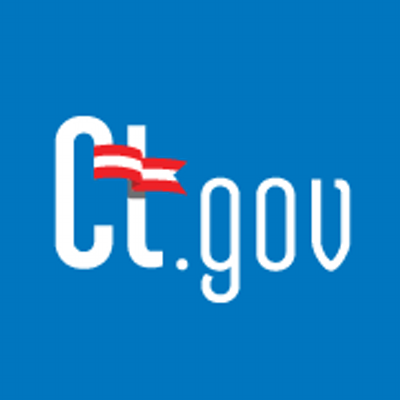
Governor Ned Lamont today announced that his administration is making a five-year, $46.6 million investment to expand small business assistance programs across Connecticut that will be provided through grants to local nonprofit economic development organizations that provide a wide array of assistance to support the formation, growth, and innovation of small businesses.
One of the main goals of this initiative, which is being administered by the Connecticut Department of Economic and Community Development (DECD), is to support underserved businesses. At least 50% of the financial assistance will fund minority, woman, disabled, and veteran-owned companies, as well as those that are located in distressed municipalities. Another goal is to support startups in the state.
This investment is a part of the Lamont administration’s larger strategy to support small business growth and complements the Connecticut Small Business Boost Fund, which launched this summer. The Boost Fund is a public-private partnership that provides low-interest loans to small businesses and nonprofits, particularly those in low-income and historically underserved communities. To date, 66 loans totaling $10.8 million have been made under the fund, with 61% of those going to minority and women-owned businesses, and 23% to companies and nonprofits located in distressed municipalities.
The funding for this initiative was approved at a recent meeting of the State Bond Commission under the chairmanship of Governor Lamont.
The grant recipients are:
- Black Business Alliance ($2.7 million): Funds will help the alliance to provide financial, technical assistance, and business coaching for Black entrepreneurs throughout the state. It will continue the Main Street and Beyond Program, a three-month intensive program that works collaboratively with community partners to expand service capacity and includes expert technology, marketing, and retail support. In addition, a grant program will be established for Black businesses.
- The Community Foundation for Greater New Haven ($7.2 million): Funds will be used to build a more equitable entrepreneurial ecosystem and a more resilient small business landscape in Greater New Haven. Through its mission investment subsidiary, the organization will work with local entrepreneurial support organizations and small business owners to support a full continuum of grants, business advisory, and technical services in Greater New Haven.
- Girls for Technology ($5 million): Girls for Technology partnered with the Society of Human Engagement and Business Alignment to create support services for Black and Indigenous people of color women entrepreneurs. State funds will help the organizations expand their capacity and access to business resources such as training, coaching, and certification programs, as well as capital, business acceleration, and pitch competitions to amplify small business development in underserved communities.
- Hartford Economic Development Corporation (HEDCO) and Spanish American Merchants Association (SAMA) ($7.7 million): State funds will help the organizations design and implement financial support to the targeted businesses and other underrepresented entrepreneurs who lack the resources they need; create an ecosystem of providers and additional resources for small businesses to utilize; offer training workshops, seminars, and collaborate with local universities; establish HEDCO/SAMA satellite offices in Waterbury, Bridgeport and Norwich/New London; and support for young entrepreneurs.
- Middlesex County Revitalization Commission ($1.5 million): The organization will use the funding to provide grants of up to $25,000 and provide ongoing technical assistance to existing small businesses in Middlesex County.
- Minority Construction Council (MCC) ($1 million): The award will help MCC provide a comprehensive package of technical assistance services to support and sustain new and existing small businesses. The principal beneficiaries will be small minority businesses in the construction industries and others doing business or trying to do business in the greater Bridgeport, Waterbury, New London, Norwich, and New Britain areas.
- Social Enterprise Trust, Inc. DBA reSET ($2.225 million): The award will be used to provide grants and technical assistance to new and existing small retail businesses located primarily in the greater Hartford region. reSET’s plan includes two programs – the Hartford Culinary Collaborative Program, which supports the founding, launch and scaling of food businesses in the region, and the Floor-Plan Retail Activation Initiative, which aims to develop a local, modern, and robust retail community in Hartford. Primary beneficiaries will be Hartford-based businesses owned by low-to-moderate-income individuals and those in the targeted populations.
- Southeastern Connecticut Enterprise Region Corporation (seCTer), ($4.5 million): The award will provide seed and growth funds to startup and existing businesses in the region, with a focus on companies in advanced manufacturing, offshore wind supply chain and renewable energy, childcare services, and agriculture/aquaculture production. It also will fund SeCTerRise, a technical assistance initiative to provide workshops in business fundamentals, pitch events, and business planning competitions, with particular emphasis on underserved, marginalized and untapped populations in southeastern Connecticut.
- Realist Lab ($5 million): Funding will go toward the Realist Lab Venture Launch Fellows Program, a program designed to support business owners and build toward a more equitable and inclusive future for the residents of Connecticut. It’s intended to leverage the untapped business opportunities led by women, Black, Latinx, Native Americans, Silver, LGBTQIA+, and other minoritized groups. The initiative consists of two parts. The Startup Accelerator is a 12-week structured curriculum that provides training in core business practices, founder wellness, and tailored specializations in technology and consumer products. The Startup Technical Co-Founder Service takes graduates of the accelerator and provides further technical resources to help them launch, raise capital successfully, and scale their high-growth startups.
- Women’s Business Development Council (WBDC) ($9.8 million): Funding will help the WBDC expand its microgrant and technical assistance programs for businesses throughout Connecticut. WBDC’s Equity Match Grant and Launch Pad programs provide capital infusions of $2,500 to $10,000 coupled with expert technical assistance to effectively help women-owned businesses access the financial capital and business acumen they need to launch, scale, and grow thriving enterprises in Connecticut. Funding also will help WBDC open a new office in the distressed municipality of Waterbury and expand its New London office.